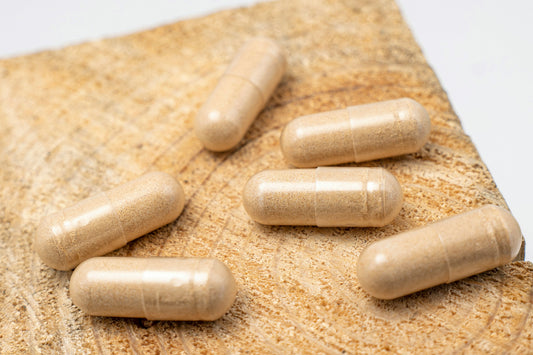Exploring the Side Effects of Beet Root Powder
Beet root powder has gained popularity as a natural supplement due to its potential health benefits, including improved exercise performance, lower blood pressure, and enhanced cognitive function. However, with any supplement, it is important to consider the potential side effects and risks.
In this section, we will delve into the various side effects that beet root powder may have on the body. We will explore the potential risks, adverse effects, and negative impacts that can arise from consuming beet root powder as a supplement. It is important to be aware of these concerns to make informed decisions about incorporating beet root powder into your daily routine.
Key Takeaways
- Beet root powder may have potential side effects
- It is important to consider the risks and drawbacks before taking beet root powder
- Possible side effects include digestive issues, allergic reactions, and interactions with medication
- Concerns about beet root powder include high oxalate levels and impact on blood pressure
- Consult with a healthcare professional if you have any concerns about incorporating beet root powder into your daily routine
Understanding the Risks and Drawbacks of Beet Root Powder
While beet root powder can offer a range of health benefits, it is essential to understand the potential risks and drawbacks associated with its consumption. Here, we delve into some of the most common side effects that individuals may experience when taking beet root powder as a supplement.
Common Side Effects
Some individuals may experience digestive issues, such as stomach cramps, bloating or diarrhea, when taking beet root powder. In addition, the high nitrate content in beetroot powder may lead to headaches or migraines in some people.
Beetroot powder can also interact with certain medications, such as blood thinners or medication used to treat erectile dysfunction, leading to negative effects. Moreover, individuals with a history of kidney stones or high oxalate levels should take caution as beetroot powder may worsen these conditions.
Drawbacks
While it may provide several health benefits, beet root powder is not for everyone. It contains high levels of oxalate, which can lead to the formation of kidney stones in susceptible individuals. Additionally, beet root powder can cause a drop in blood pressure, which can be especially concerning for individuals with low blood pressure levels already.
It is essential to be aware of these potential side effects and drawbacks before incorporating beet root powder into your daily routine. To reduce the risks associated with its consumption, speak with a healthcare professional to determine whether or not it is the right supplement for you.
Potential Side Effects of Consuming Beet Root Powder
While beet root powder can bring health benefits, it's important to be aware of its potential side effects to make informed decisions about incorporating it into your daily routine.
One concern is the possible formation of kidney stones, which may occur due to the high concentration of oxalates in beet root powder. Individuals with a history of calcium oxalate kidney stones should be cautious when consuming beet root powder.
Additionally, beet root powder may impact blood pressure levels. The nitrates in beet root powder can lower blood pressure, which may be beneficial for those with high blood pressure. However, it may lead to dangerously low blood pressure in individuals already taking medication for hypertension. Therefore, it's important to speak with a healthcare professional before consuming beet root powder if you have a history of low blood pressure or take medication for hypertension.
Another concern is the high levels of oxalates in beet root powder, which may cause gastrointestinal issues such as bloating, diarrhea, or stomach pain in some people. Those with a history of digestive problems should consume beet root powder in moderation.
If you have concerns about consuming beet root powder, speak with a healthcare professional before adding it to your daily routine. They can help determine whether it is suitable for your health needs.
Potential Side Effects and Risks of Beet Root Powder
While beet root powder has been shown to have various health benefits, it is important to be mindful of its potential side effects and risks
Common Side Effects
Some individuals may experience digestive issues such as bloating, gas, and diarrhea after consuming beet root powder. Allergic reactions are also a potential concern, especially for those with a history of allergies or sensitivities to beets or other plants in the same family. Additionally, beet root powder may interact with certain medications, including blood pressure medications, and can cause a drop in blood pressure.
High Oxalate Levels
Beet root powder contains high levels of oxalates, which can contribute to the formation of kidney stones in some individuals. People with a history of kidney stones or calcium oxalate crystals in their urine should exercise caution when consuming beet root powder.
Impact on Blood Pressure
Beet root powder has been shown to lower blood pressure due to its nitrate content. While this may be beneficial for those with high blood pressure, it can be dangerous for those with normal or low blood pressure levels. Individuals with low blood pressure should avoid consuming beet root powder or consult with their healthcare provider before doing so.
Consult with a Healthcare Professional
If you are considering adding beet root powder to your daily routine, it is important to consult with a healthcare professional to determine if it is suitable for your individual health needs. They can provide guidance on safe dosages and potential interactions with medications or other supplements you may be taking.
By being aware of the potential side effects and risks associated with beet root powder, you can make informed decisions that align with your overall well-being.





